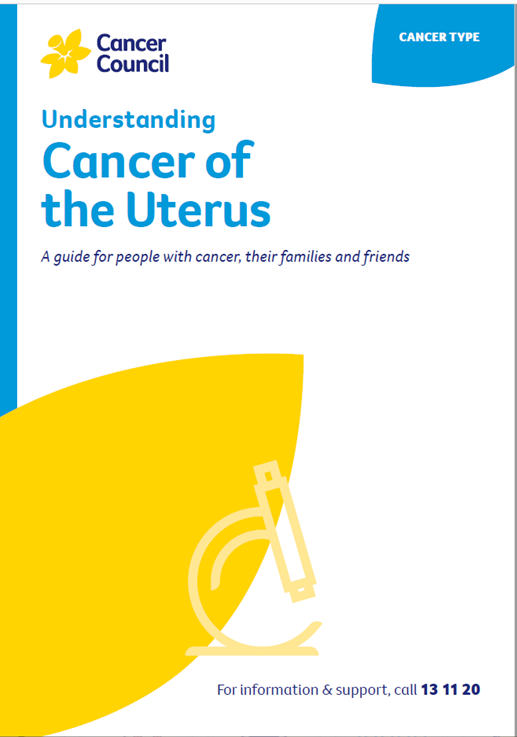- Home
- Cancer of the uterus
- Treatment
- Hormone therapy
Hormone therapy for cancer of the uterus
Hormone therapy may also be called endocrine therapy or hormone-blocking therapy.
Learn more about:
Overview
Hormones such as oestrogen and progesterone are substances that are produced naturally in the body. They help control the growth and activity of cells. Some cancers of the uterus (endometrial cancer) depend on oestrogen or progesterone to grow. These are known as hormone-dependent or hormone-sensitive cancers and they can sometimes be treated with hormone therapy.
Hormone therapy may be recommended for cancer of the uterus that has spread or come back (recurred), particularly if it is a low-grade cancer. It is also sometimes offered as the first treatment if surgery has not been done (e.g. when someone with early-stage, low-grade cancer of the uterus chooses not to have a hysterectomy because they want to have children, or if someone is too unwell for surgery).
How hormone therapy is given
The main hormone therapy for hormone-dependent cancer of the uterus is progesterone that has been produced in a laboratory. High-dose progesterone is available in tablet form (usually medroxyprogesterone) or, if you have not had a hysterectomy, through a hormone-releasing intrauterine device (IUD) called a Mirena. A Mirena is placed into the uterus by your doctor.
Other hormone drugs may be available on clinical trials. Talk to your doctor about the risks and benefits of the different methods.
Side effects of hormone therapy
Common side effects of progesterone treatment include:
- breast tenderness
- headaches
- tiredness
- nausea
- menstrual changes
- bloating.
In high doses, progesterone may increase appetite and cause weight gain. If you have an IUD, it may move out of place and need to be refitted by your doctor.
→ READ MORE: Immunotherapy and targeted therapy
Podcast: Managing Cancer Fatigue
Listen to more of our podcast for people affected by cancer
More resources
A/Prof Orla McNally, Consultant Gynaecological Oncologist, Director Oncology/Dysplasia, Royal Women’s Hospital, Honorary Clinical Associate Professor, University of Melbourne, and Director of Gynaecology Tumour Stream, Victorian Comprehensive Cancer Centre, VIC; A/Prof Yoland Antill, Medical Oncologist, Peninsula Health, Parkville Familial Cancer Centre, Cabrini Health and Monash University, VIC; Grace Guerzoni, Consumer; Zeina Hayes, 13 11 20 Consultant, Cancer Council Victoria; Bronwyn Jennings, Gynaecology Oncology Clinical Nurse Consultant, Mater Hospital Brisbane, QLD; A/Prof Christopher Milross, Director of Mission and Radiation Oncologist, Chris O’Brien Lifehouse, NSW; Mariad O’Gorman, Clinical Psychologist, Liverpool Cancer Therapy Centre and Bankstown Cancer Centre, NSW.
View the Cancer Council NSW editorial policy.
View all publications or call 13 11 20 for free printed copies.
Need to talk?
Support services
Coping with cancer?
Speak to a health professional or someone who has been there, or find a support group or forum
Looking for transport, accommodation or home help?
Practical advice and support during and after treatment
Cancer information
Making cancer treatment decisions
Decision-making steps, consent and second opinions
Resource hub
Guides, fact sheets, videos, podcasts and more for people with cancer, their families and friends

